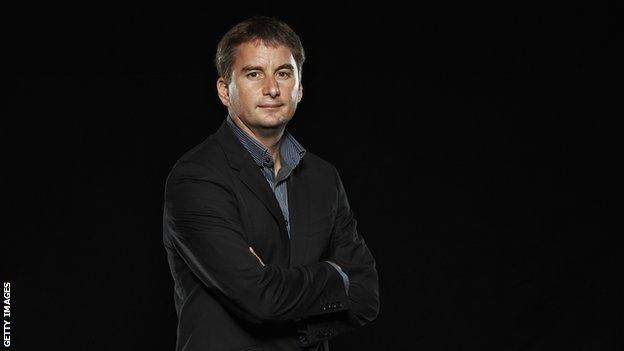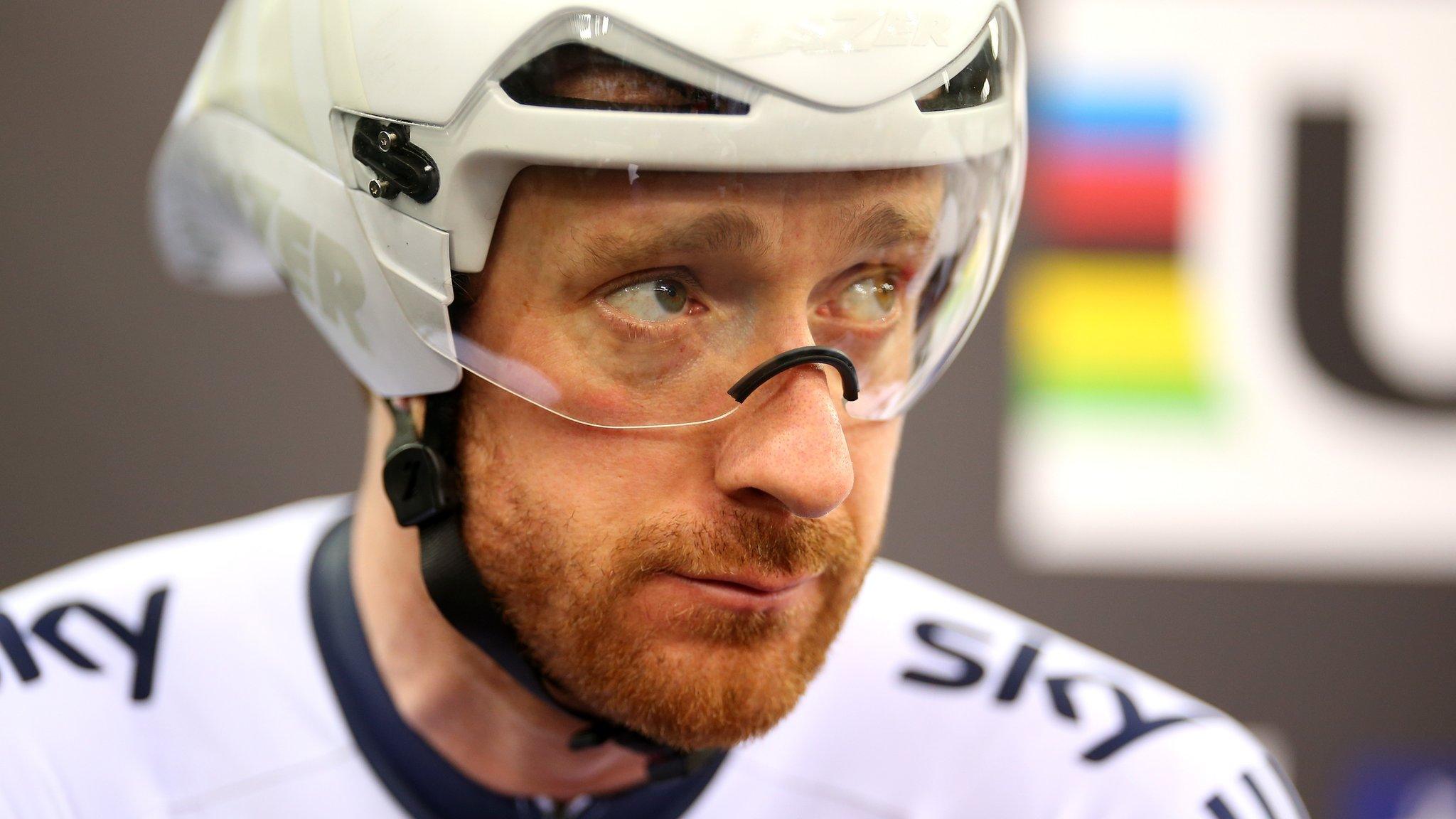Ian Drake: British Cycling chief executive to leave his position in April
- Published

Drake has overseen a hugely successful period in British Cycling's history, and a huge increase in the sport's popularity
British Cycling chief executive Ian Drake will step down in April.
The organisation is already searching for a replacement for performance director Shane Sutton, who left amid allegations of sexism, which he denies.
Drake, CEO since 2009, has been in charge during a hugely successful era.
"I believe that the end of this Olympic cycle is the natural moment for a new CEO to take the organisation forward into Tokyo 2020," he said., external
"I have been involved with British Cycling in some form for almost 20 years, the last eight as CEO, and it is an organisation that I will always love.
"I have been privileged to be a part of the amazing success we have experienced over those two decades and I know that it will go on to even greater heights.
"Now is the right moment for both myself and British Cycling to move on."
The announcement of his exit - revealed by BBC sports editor Dan Roan - comes with British Cycling under scrutiny from UK Anti-Doping (Ukad), which is investigating allegations of wrongdoing in the sport.
The claims surround therapeutic use exemptions (TUEs), and the administering of medication to riders.
Ukad officials visited British Cycling headquarters earlier this month, saying the meeting was arranged with the governing body's "full co-operation".
A day earlier, former Team Sky rider Jonathan Tiernan-Locke had told BBC Sport he was "freely offered" the controversial painkiller Tramadol when competing at the Road World Championships four years ago.
British Cycling put the allegation to the medic in question, doctor Richard Freeman, on the BBC's behalf. He denied it.
Team Sky are also under investigation, and their former rider Sir Bradley Wiggins, a Tour de France winner, has been criticised over his use of TUEs.
There is no suggestion British Cycling, Team Sky or Wiggins have broken any rules.
Wiggins took anti-inflammatory drug triamcinolone for allergies and respiratory problems shortly before the 2011 and 2012 Tours and the 2013 Giro d'Italia, his TUEs having been approved by the relevant authorities.
In an interview with BBC Sport published earlier on Thursday, former head of British Cycling Peter Keen said he feared the controversy could cause "collateral damage" to Team GB.
He said it would be an "absolute tragedy" if innocent riders were unfairly tainted, adding there were "lessons to be learned" for British Cycling and Team Sky.
'Tragedy if innocent riders are tainted'
Keen backed Drake, saying he is "an outstanding individual who I've known for 20 years" and "one of the greatest minds in sports development".
However, he added: "Undoubtedly through his leadership mistakes were made and they're uncomfortable and I know it hurts Ian when they're raised.
"But they reflect a whole series of things done with good intention that weren't thought through and managed as well as they could."
The controversy over TUEs began after hackers allegedly from Russia released athletes' medical files stolen from the World Anti-Doping Agency (Wada).
British Cycling's independent review is yet to publish its findings into the allegations surrounding Australian Sutton, 59.
In April, the organisation was also ordered by UK Sport to investigate allegations official kit - including a high-performance bike - had been sold online for profit.
Britain's golden period under Drake
During Drake's time in charge, track cycling has overtaken rowing as the nation's most successful Olympic sport.
Britain won 20 of the 30 gold medals available in the sport over the past three Games.
Participation in cycling has also increased dramatically, with the sport now behind only swimming and athletics in terms of popularity.
Britain was recently awarded the 2019 Road World Championships, which will be staged in Yorkshire, although Drake himself did not attend the announcement.
During Drake's time in charge:
Dame Sarah Storey became Britain's most decorated female Paralympian, with 14 gold medals (she won two at Beijing 2008);
Jason Kenny and Sir Chris Hoy became Britain's most successful Olympians, with six golds apiece (Hoy won one at Athens 2004 and three at Beijing 2008);
Laura Trott became the first British woman to win four Olympic golds;
Sir Bradley Wiggins became the first Briton to win eight Olympic medals (he won a combined six medals at Sydney 2000, Athens 2004 and Beijing 2008);
Wiggins became the first British winner of the Tour de France, in 2012;
Chris Froome subsequently won the race three times.
Analysis
BBC sports editor Dan Roan
This is significant - the departure of the man at the very top of Britain's best-funded and most successful Olympic sport. Ian Drake has overseen a truly remarkable period for cycling in this country, both in terms of medals and participation growth.
But the news also comes with the sport mired in controversy, and many will see Drake as the first victim of that turbulence.
It is no real surprise. Last week, Drake pulled out of an event marking Britain's winning bid to stage the 2019 Road World Championships. Amid mounting criticism of the way this crisis has been handled - and the relationship between the governing body and Team Sky - pressure had been mounting.
But with various investigations into the sport continuing, it is highly unlikely the fallout is over.
- Published20 October 2016
